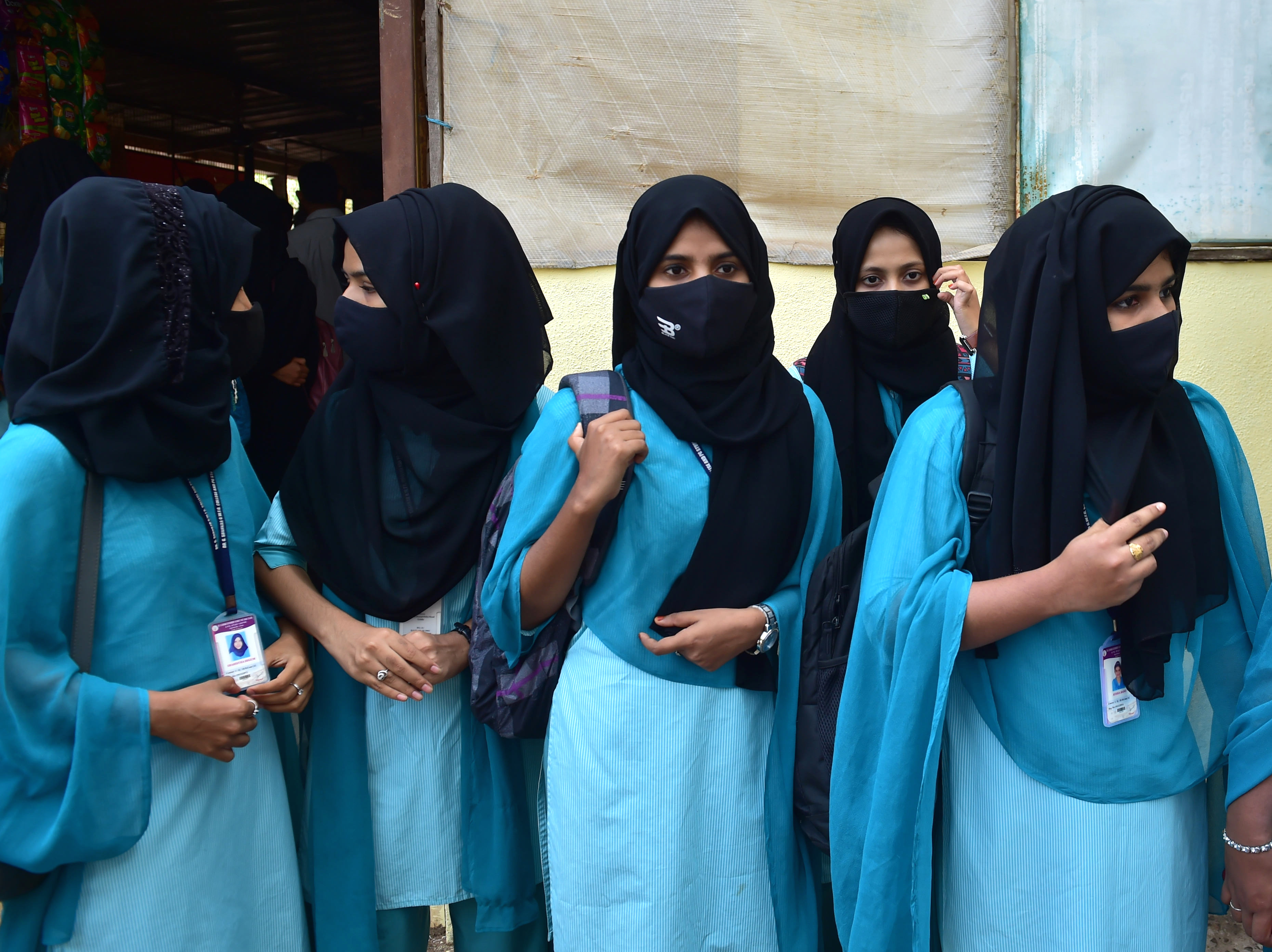


A plea has been filed before the Supreme Court contesting a Bombay High Court order that upheld a ban imposed by NG Acharya and DK Marathe College in Chembur, Mumbai, on students wearing burqas, hijabs, or niqabs on campus. The case, titled Zainab Abdul Qayyum Choudhary and Others v. Chembur Tromboy Education Society, NG Acharya and DK Marathe, College of Art, Science and Commerce and Others, has drawn significant attention for its implications on religious freedom and educational policy.
Nine students from NG Acharya and DK Marathe College challenged a notice from the college that enforced a new dress code starting from the new academic year in June. The notice stated:
"You shall follow the dress code of college of formal and decent dress which shall not reveal anyone’s religion such as no burqa, no nakab, no hijab, no cap, no badge, no stole etc. Only full or half shirt and normal trousers for boys and any Indian/Western non-revealing dress for girls on the college campus. Changing room available for girls."
The students argued that the restriction was discriminatory and violated their fundamental rights. However, the Bombay High Court dismissed their plea. A Bench of Justices AS Chandurkar and Rajesh Patil observed that the directive aimed to prevent the disclosure of a student's religion, allowing them to focus solely on their education. The Court remarked:
"The object behind issuing the same is that the dress of a student should not reveal his/her religion which is a step towards ensuring that the students focus on gaining knowledge and education which is in their larger interest."
Displeased with the High Court's decision, the students have now taken their case to the Supreme Court. A Bench of Chief Justice of India (CJI) DY Chandrachud and Justices JB Pardiwala and Manoj Misra has agreed to list the case for hearing. The CJI stated:
"Yes we will give a date in this case and hear it."
In their plea to the Supreme Court, the appellants have argued that the college, affiliated with Mumbai University and aided by the State of Maharashtra, had no legal authority to impose such restrictions. The plea described the directive as:
"The proposition of achieving 'formal and decent' dressing amongst students by prohibiting wearing of hijab, nakab, burkha, etc. was absurd, irrational, and thus the Impugned Instruction was manifestly arbitrary and suffered from Wednesbury unreasonableness."
The students emphasized that the restriction violated Article 15 of the Constitution by creating a hostile environment for female students, particularly those of the Muslim faith. The plea highlighted that such restrictions:
"...added fetters to their access to secular education and deprived them of equal opportunity."
The petitioners further argued that wearing religious attire like hijabs, niqabs, or burqas does not disrupt the classroom environment or discipline, nor does it grant any unfair advantages.
The petition also referenced the University Grants Commission (UGC) guidelines, which aim to increase access to higher education for marginalized communities, including Muslims. Additionally, the National Education Policy promotes inclusivity, a principle the petitioners argue is undermined by the college's dress code.
As the Supreme Court prepares to hear this significant case, the outcome will likely have far-reaching consequences for the balance between religious freedom and educational policies in India. The decision could set a precedent for how educational institutions handle religious expressions and dress codes moving forward.
TAGS: Supreme Court Religious attire Hijab ban Bombay High Court Educational policy Constitutional rights Inclusivity